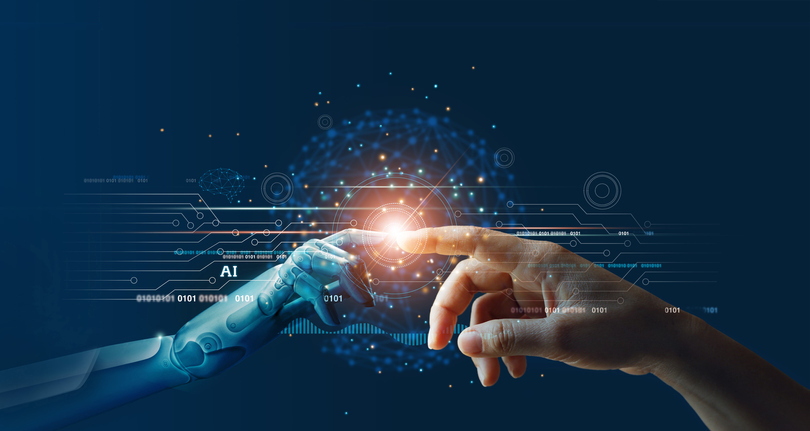 Artificial intelligence’s unprecedented boom came only after the pandemic when automation became the key to coping with worker shortages and high labor costs and improving operational effectiveness and efficiency. Per an IBM report, 25% of the companies adopted AI applications to address the pressing concern of labor shortage. One such application is ChatGPT.
Artificial intelligence’s unprecedented boom came only after the pandemic when automation became the key to coping with worker shortages and high labor costs and improving operational effectiveness and efficiency. Per an IBM report, 25% of the companies adopted AI applications to address the pressing concern of labor shortage. One such application is ChatGPT.
ChatGPT had a record adoption rate and garnered more than a million users within the first five days of the launch. In February, Microsoft announced the third-phase partnership with OpenAI and invested $10 billion to accelerate AI breakthroughs worldwide.
But what does ChatGPT hold for the staffing and recruitment industry? Is it a companion that will improve things or a nemesis that will wreak havoc on the job industry?
Proceed With Caution
According to a Korn Ferry report, 54% of professionals use ChatGPT beyond their daily work. Given the first-hand benefits, ChatGPT could be a valuable tool for recruiters as well as for candidates. While recruiters can use ChatGPT to streamline the recruitment process and make the hiring process more efficient, candidates can use it to craft résumés. For instance, a survey adds that 46% of job seekers use ChatGPT to write their résumés and cover letters.
It is also interesting to note that the number of qualified applications has increased since ChatGPT launched. A Resume Builder survey says that 61% of hiring managers noticed an increase in the number of qualified applications since ChatGPT’s launch. Coincidence? Maybe or maybe not!
PREMIUM CONTENT: Building a Supplier Performance Scorecard Guide
Here are some more possibilities and use cases for ChatGPT in the staffing and recruitment process.
Creating job descriptions and question banks. Eighty-five percent of hiring managers already use ChatGPT to create attractive job descriptions. ChatGPT can help a recruiter create a question bank specific to roles and interview types. For instance, a fresher recruiter can use ChatGPT to create a list of 10 interview questions for the role of a Java developer.
Email generation. Writing hundreds of emails could be time-consuming and daunting. Recruiters or hiring managers can use ChatGPT to create emails and candidate outreach copies. In fact, 85% of hiring managers already use ChatGPT to correspond with job applicants from initial recruiting through to rejections.
Candidate search. According to a survey by Resume Builder, 61% of hiring managers observed an increase in the number of qualified applications since ChatGPT’s launch. Nearly two-thirds, 63%, of the survey respondents believed candidates who used ChatGPT-generated materials to be more qualified compared to those who did not. Moreover, 71% of the respondents affirmed ChatGPT-generated material as high or very high quality.
ChatGPT Still Has a Long Way to Go!
ChatGPT has the potential to disrupt industries — just like Uber did to the taxi industry, Airbnb to the hotel industry and Netflix to the television industry. But beware, there are some downside risks.
ChatGPT results are not always accurate. In fact, 43% of the professionals do not trust it to provide accurate results. On many occasions, ChatGPT generated wrong answers to simple logic questions. OpenAI itself claims that ChatGPT sometimes writes plausible-sounding but incorrect or nonsensical answers.
Another downside is that, as of now, ChatGPT can provide information only till September 2021. Thus, if you are looking for data that dates after September 2021, ChatGPT might not provide answers.
ChatGPT has security concerns. ChatGPT is allegedly leveraged with security concerns and could inadvertently release confidential data. Samsung, JPMorgan Chase, Verizon, Bank of America, Deutsche Bank and many more global companies have banned ChatGPT over security concerns. In May, Apple also prohibited ChatGPT use, citing data safety concerns.
Undoubtedly, ChatGPT has a lot of potential. But is it better than humans? Maybe on some fronts but definitely not greater than the “Human Kind.”
No matter how advanced a technology may get, personalized experiences fostered by humans always have, and will continue to have, an upper hand. Humans have critical thinking abilities and values that help them take better decisions. But will ChatGPT take human jobs? To be honest, it may — like any other technology. Technological advancements have been taking jobs and replacing people for many decades. However, new technologies also create new job opportunities in the market. In such scenarios, the role of the staffing industry becomes much more crucial in bridging the skill and talent gap.